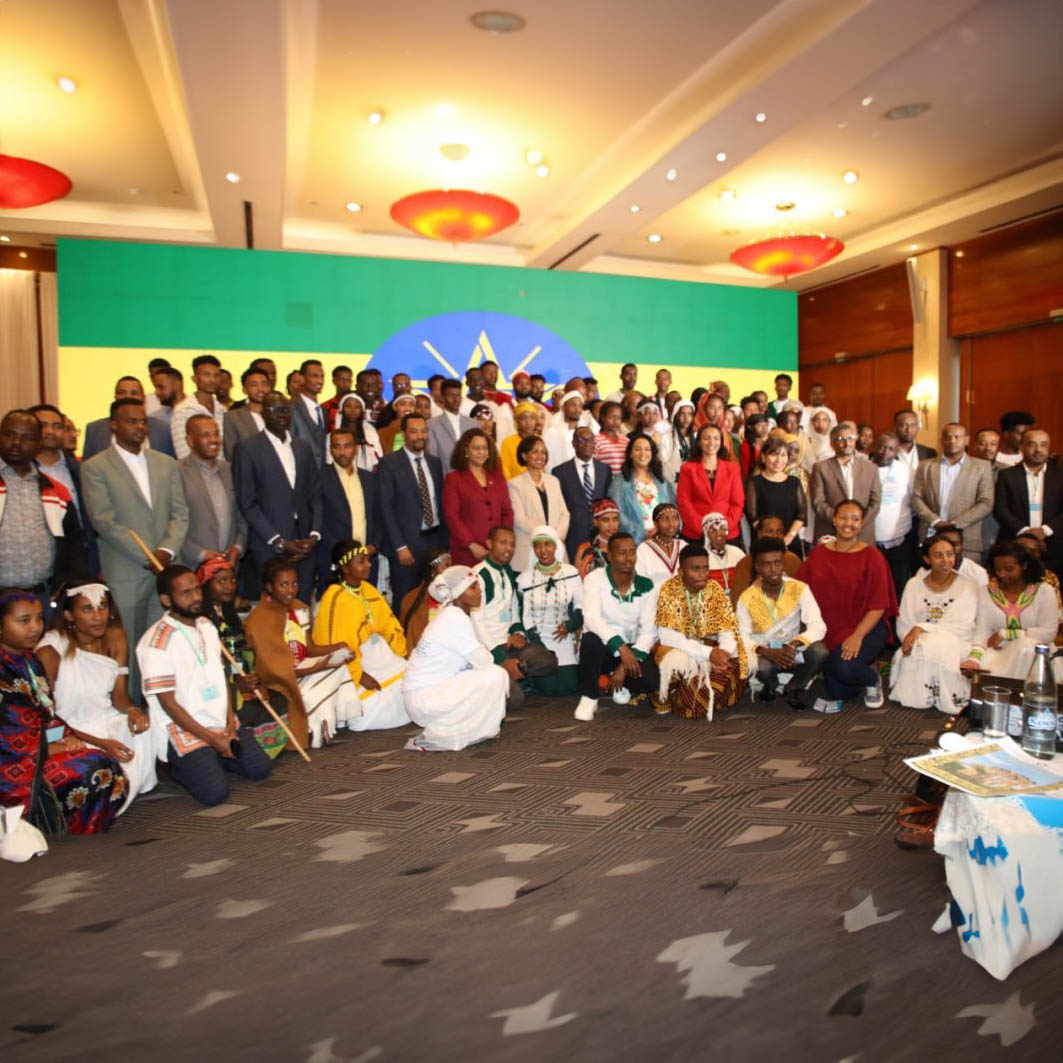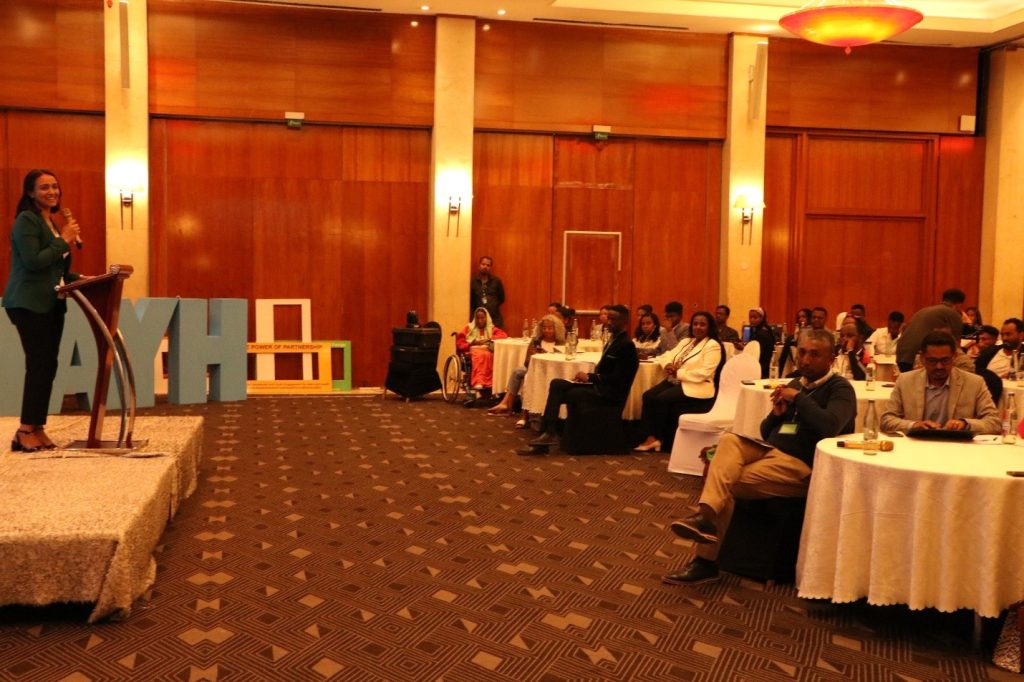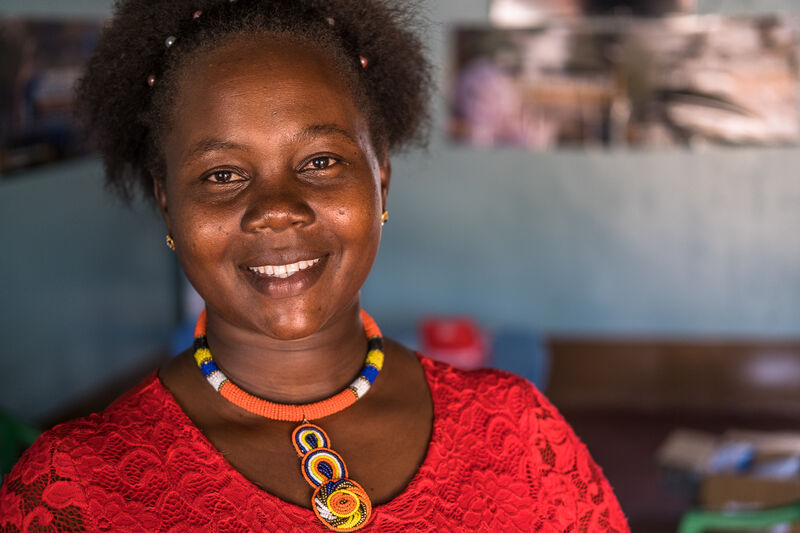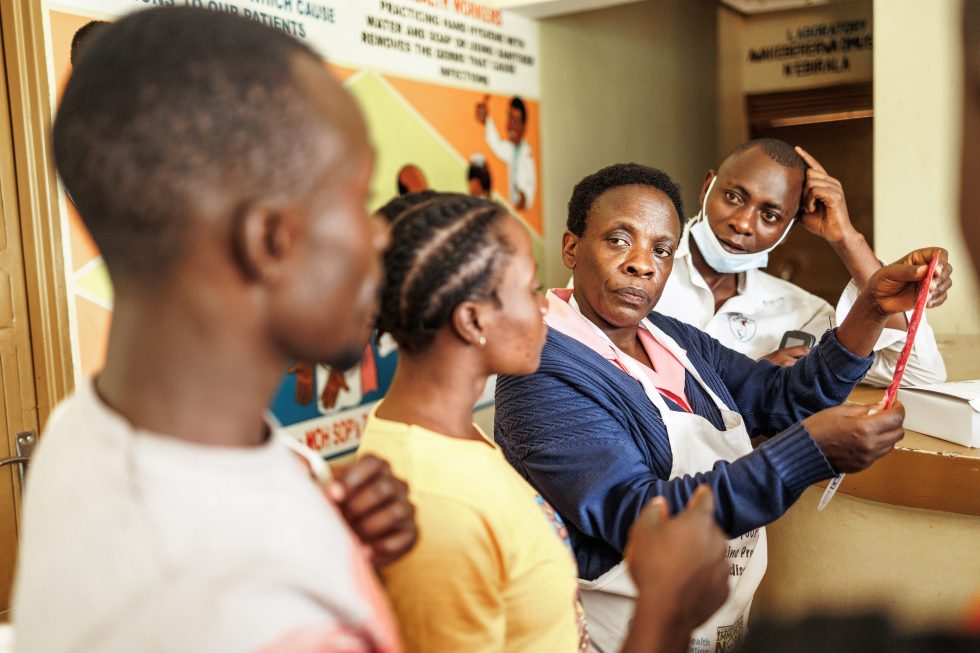

DSW Ethiopia shares insight at the 4th national adolescent and youth health forum
The 4th National Adolescent and Youth Health Forum, which drew professionals, decision makers, youth advocates, and more than 300 young people from across the country, was held from October 1 to 3, 2023, at the Hilton Hotel in Addis Ababa. “The Power of Partnership: Meaningful Adolescent and Youth Engagement for Improved Health” was the forum’s central theme. The forum aimed to facilitate collaboration and knowledge sharing among stakeholders in order to strengthen the delivery of adolescent and youth health services. It provided a platform for participants to discuss innovative strategies, share best practices, and identify key priorities for improving the health outcomes of young people. The forum brought together a diverse range of participants, including government officials, representatives from non-governmental organisations including UNFPA and WHO, healthcare professionals, and youth champions from all DSW project areas. Through interactive workshops and panel discussions, attendees explored ways to empower adolescents and youth to actively participate in decision-making processes related to their health. Additionally, the forum emphasised the importance of fostering partnerships between different sectors to ensure comprehensive and integrated health services for young people.
Adolescent and youth engagement in health programmes can help address their specific needs and challenges, such as reproductive health, mental health, and substance abuse. When they are actively involved in the decision-making process, interventions can be tailored to their specific needs, resulting in more effective and impactful outcomes. This not only enhances the effectiveness of health programmes but also promotes a culture of inclusivity and participation among adolescents and youth, setting the stage for their active involvement in shaping their own health and well-being. This approach recognises their unique perspectives and ensures that interventions are relevant and responsive to their evolving needs. Ultimately, this leads to improved health outcomes and equips them with the necessary skills and knowledge to make informed choices throughout their lives.

The multi-sectoral approach ensures that a wide range of perspectives and expertise are considered in the development and implementation of health programmes for adolescents and youth. This procedure allows for a holistic understanding of the various factors that influence adolescent and youth health, including social, economic, and cultural determinants. By incorporating input from different sectors such as education, healthcare, and government, the forum aims to create comprehensive strategies that address the diverse needs of adolescents and youth. This multi-sectoral engagement is critical to achieving the health sector’s 10-year plan as well as meeting the Sustainable Development Goals (SDGs) by 2030.

Dr. Ergoge Tesfaye, Minister of Women and Social Affairs, delivered a keynote speech emphasising the importance of prioritising the health and well-being of adolescents and youth in Ethiopia. She emphasised the importance of awareness, education, and collaboration among healthcare providers, educators, and community organisations in order to create a supportive environment for healthy behaviours and accessible resources. Dr. Ergoge calls for collaboration and coordinated efforts to address the specific health needs and challenges faced by adolescents and youth. The coordinated effort should include comprehensive sexual and reproductive health education, mental health support, and access to quality healthcare services. By prioritising the health and well-being of adolescents and youth, we can empower them to make informed decisions about their own health and ultimately contribute to a healthier society. This can be achieved through initiatives such as peer support programmes, youth-friendly healthcare facilities, and inclusive policies that address the unique needs of this population.

Dr. Liya Tadesse, Minister of Health, stated, “Investing in the health and well-being of adolescents and youth is crucial for the overall development of our society. By providing comprehensive health education, mental health support, and access to quality healthcare services, we can equip young people with the knowledge and resources they need to lead healthy lives. This will not only benefit them individually but also have a positive impact on the future of our nation.” Dr. Liya emphasised the potential of digital healthcare services to improve accessibility and effectiveness for adolescents and youth. By leveraging technology, personalised health information can be provided, remote consultations can be offered, and digital platforms can raise awareness about health issues. Adolescent and youth-friendly health services should offer comprehensive sexual and reproductive health education, contraception access, and confidential mental health services. These should be tailored to their needs, ensuring active participation in healthcare decisions. Partnerships with schools, community organisations, and peer support networks can enhance accessibility.

Dr. Dagmawit Workagegnehu (MD), a project officer at DSW, presented “Serving the Underserved: Improving the SRH of Vulnerable Working Youth,” emphasising the need for targeted interventions and comprehensive services to address the unique barriers faced by vulnerable working youth in accessing sexual and reproductive health services. She highlighted the importance of tailoring programmes to the unique needs of working youth and the role of peer education and awareness campaigns in empowering young individuals to make informed decisions about their health. Dr. Dagmawit noted that the expansion of industrial parks, flower farms, and factories has attracted a large number of young workers, >85% of whom are women. This influx of young female workers has created a pressing need for sexual and reproductive health services that specifically cater to their needs. Dagmawit emphasised the significance of providing comprehensive information on contraception, STI prevention, and other SRH services to ensure the well-being and autonomy of these vulnerable working youth. Dr. Dagmawit said, “DSW has been working on three pillars at work places: demand creation, creating access, and an enabling environment. These pillars aim to address the unique challenges faced by working youth in accessing sexual and reproductive health services. By creating awareness and generating demand for these services, DSW is empowering these youths to take control of their own health and well-being. Additionally, by advocating for an enabling environment that supports their access to SRH services, DSW is working towards ensuring that these working youth can exercise their autonomy and make informed decisions about their reproductive health.”

Mr. Tesfaye Felaha, DSW’s program manager, also underlined the need for creating safe spaces, particularly for women and girls, with the aim of effectively preventing and addressing gender-based violence. Mr. Felaha’s presentation highlighted the WGFS established by DSW as a successful approach to creating safe environments for women and girls. These spaces provide a supportive and empowering atmosphere where survivors can access essential services, receive counseling, and participate in skill-building activities. Additionally, WGFS also serves as a platform for community engagement and awareness-raising on gender-based violence, fostering a collective effort towards prevention and response. The lesson learned from these WGFS is the importance of holistic and comprehensive approaches to addressing gender-based violence, which not only focus on providing immediate support to survivors but also work towards long-term prevention and societal change. Furthermore, the success of these spaces highlights the need for continued investment in resources and support systems that prioritize the safety and well-being of women and girls. The engagement of young women and girls in these spaces is crucial, as it empowers them to become leaders and advocates in their communities. This inclusivity also helps to break the cycle of violence by promoting education, awareness, and empowerment among future generations.

Dr. Meseret Zelalem, Child, Adolescent, and Youth Health Lead Executive Officer at the Ministry of Health, stressed the importance of engaging adolescents and youth in health decision-making processes. She called for multi-sectoral partnerships to address complex factors like education, employment, gender equality, and social determinants of health, including marginalised populations. Dr. Meseret also emphasised the need for ongoing research and data collection to inform evidence-based policies and interventions that specifically target the unique health needs of adolescents and youth. In her concluding remark, Dr. Meseret underscored the importance of empowering adolescents and youth to advocate for their own health, involving their experiences in policy-making, and tailoring interventions for improved health outcomes. The key directions put forth by Dr. Meseret are the strengthening of partnerships between governments, non-governmental organisations, and other stakeholders to ensure a comprehensive approach to adolescent and youth health. This collaboration will enable the sharing of resources, expertise, and best practices to effectively address the multifaceted challenges faced by this population. Additionally, Dr. Meseret highlighted the significance of engaging with local communities and promoting youth-led initiatives to foster sustainable change and create a supportive environment for the health and well-being of adolescents and youth.
Photos: private


Comments